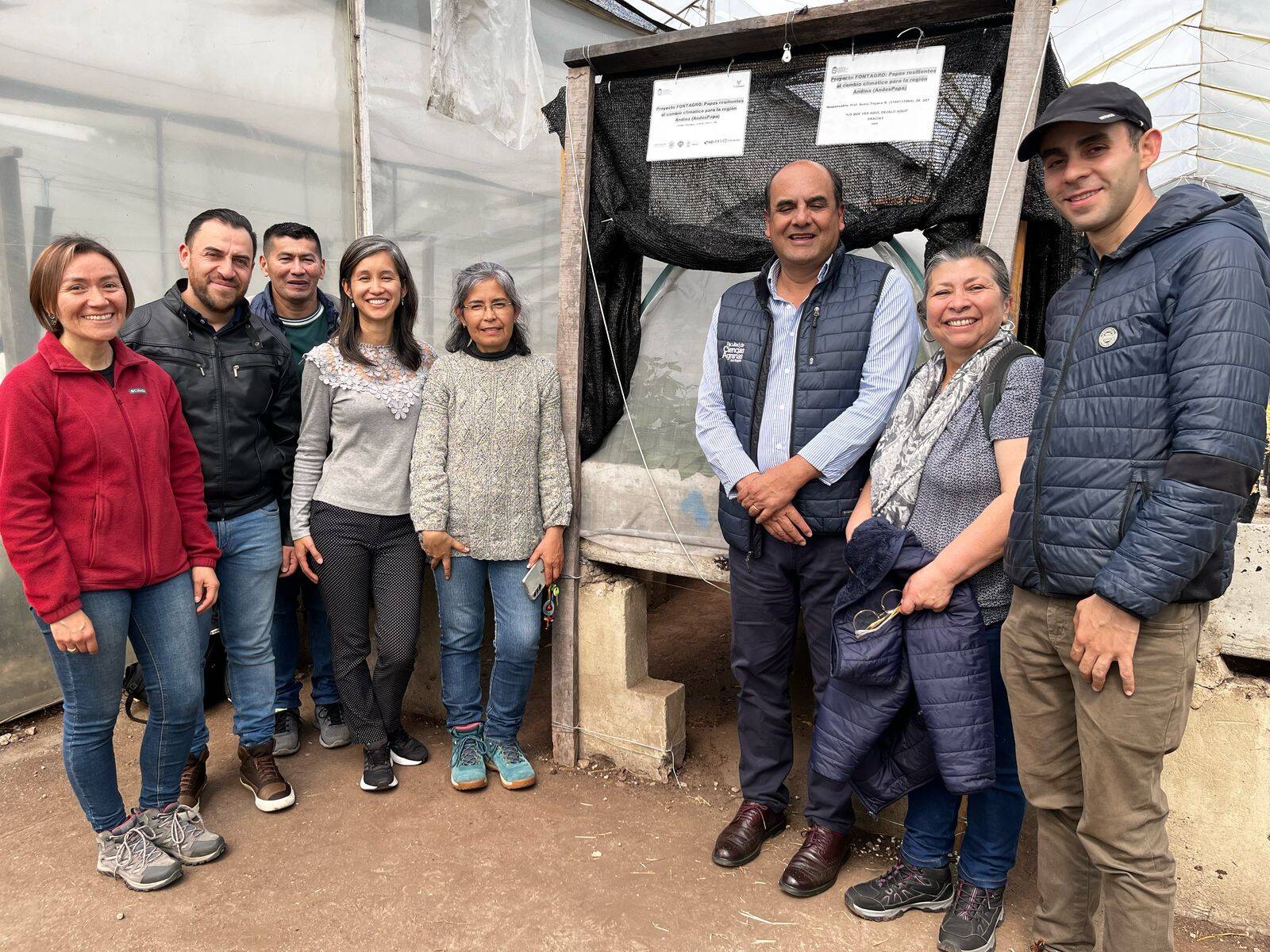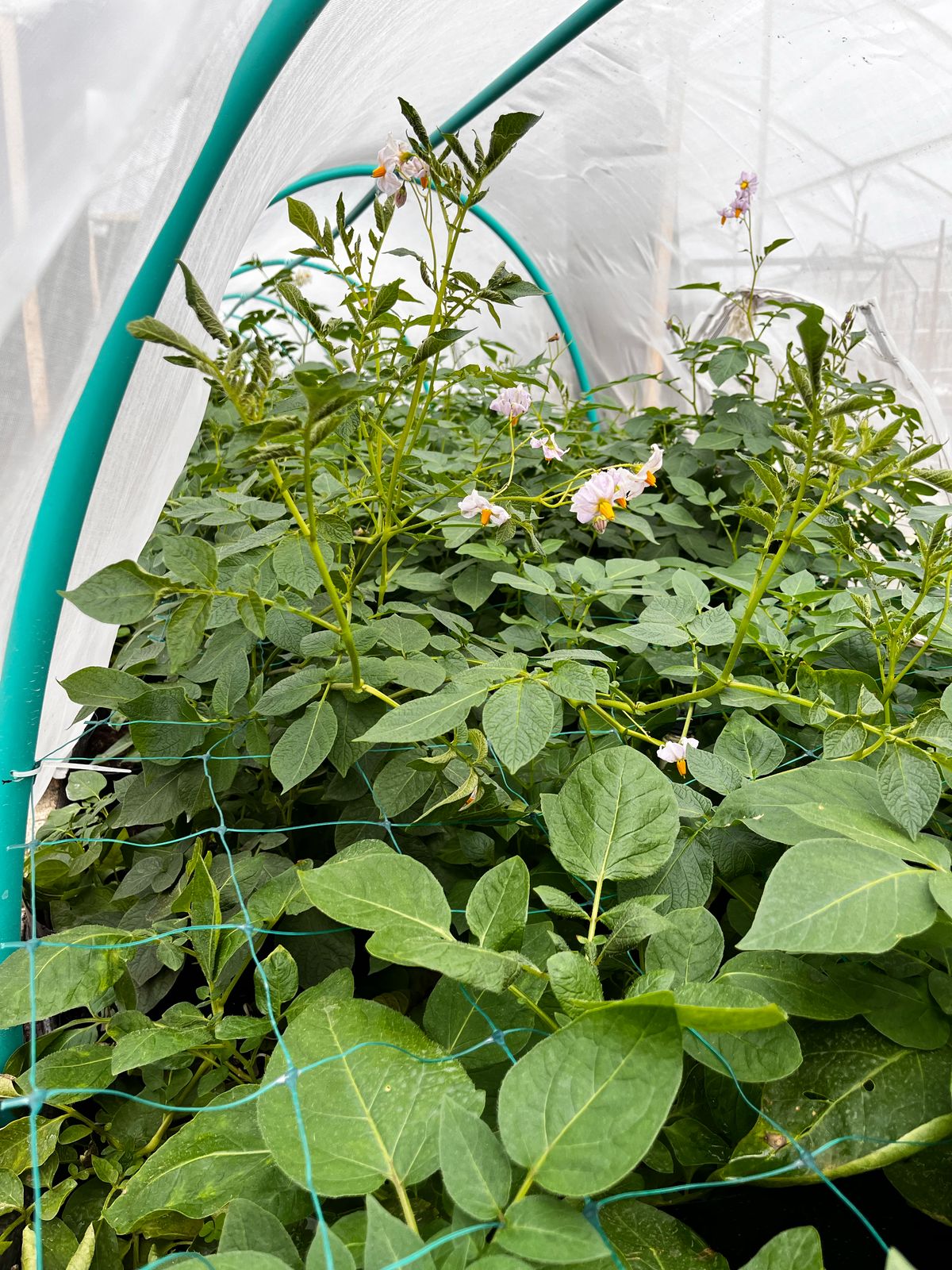AGROSAVIA visited the UNAL greenhouses in Bogotá as part of the AndesPapa project, funded by FONTAGRO, which aims to scale up drought-tolerant and early-maturing potato cultivars in the Andean region.

On July 11, researchers from AGROSAVIA visited the greenhouses of the National University of Colombia in Bogotá as part of the monitoring activities for Component 1 of the project “Climate-Resilient Potatoes for the Andean Region (AndesPapa)”, funded by FONTAGRO. This project is structured as a regional platform for potato genetic improvement, with active participation from institutions in Colombia, Ecuador, and Bolivia. Its goal is to identify and scale up drought-tolerant and early-maturing cultivars as a concrete response to climate change.

.jpeg)
In Colombia, AGROSAVIA and the National University introduced and multiplied 31 advanced potato clones from the International Potato Center (CIP) in Peru. Each clone was received in vitro, with five plants per clone. Upon arrival, the National University assumed full responsibility for the propagation process, including laboratory multiplication, acclimatization, and establishment in protected greenhouse beds.
Researcher M.Sc. Sonia Tinjacá, from the Faculty of Agronomy, leads the multiplication process at the National University. Under her coordination, an efficient propagation system has been developed, involving the planting of acclimatized clones in beds filled with sieved soil-based substrate. The beds are protected by tunnels with thrips-proof mesh, which has enabled excellent plant health management. In addition, the active involvement of students in monitoring and handling tasks has significantly contributed to their technical training.
The visit included a tour of the greenhouse facilities, followed by a meeting at the Faculty of Agronomy, where researchers from both institutions began to work on the variables to be measured during the greenhouse trials scheduled for the second year of the project, in 2026.
This experience demonstrates that the collaboration between institutions such as the National University of Colombia and AGROSAVIA supports the advancement of more resilient genetic materials, adapted to the new agro-climatic challenges of the Andean region.
AndesPapa continues to consolidate itself as a regional cooperation platform that promotes innovation, sustainability, and equity in the potato production system.
By: Diego Alejandro Salinas Velandia - Agrosavia




